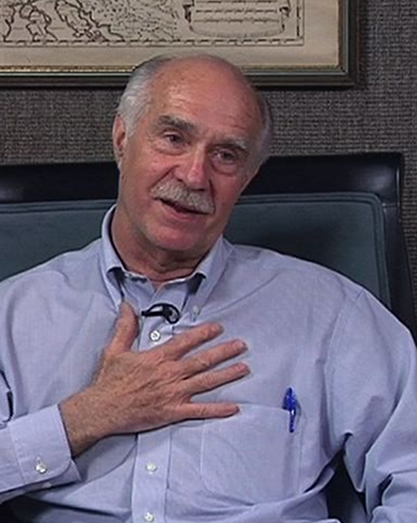 |
Rodger Schlickeisen
... President & CEO, Defenders of Wildlife. Since 1991, Mr. Schlickeisen has spurred tremendous growth for Defenders, one of the United States’ most prominent conservation advocacy organizations. Mr. Schlickeisen is also President of Defenders of Wildlife Action Fund, a political non-profit working to elect pro-conservation national leaders. Earlier, he was CEO of a leading consulting firm specializing in advancing the work of progressive advocacy organizations. He served in the Carter White House in the Office of Management & Budget and was Chief of Staff for U.S. Sentator Max Baucus. He is on the advisory committees of the Earth Communications Organization and the Environmental Media Association. His opinion pieces and articles are widely published. |
To this day, there is no known incident of a wild wolf ever killing a human being in the United States, reports Rodger Schlickeisen. He is President and CEO of Defenders of Wildlife whose logo heralds the wolf.
Why choose the much maligned wolf? Because the well-being of the American West and Alaska hinges on the well-being of wolves, and they graphically represent all things wild. So why are they so relentlessly persecuted?
“It goes back a long long long ways, probably to Aesop's Fable. Why Aesop decided to pick on the wolf as a symbol of wild and dangerous nature, I have no idea. Unfortunately, we keep playing that out, in spite of the facts.”
There's a good reason we talk about the web of life, he vividly reminds us.
“We all are interconnected. All species play a role, especially predator and keystone species. I’ll give you an example. The return of wolves to Yellowstone Park has made it a more dynamic place, dynamic in the sense that this age old predator-prey relationship that's been there forever is now playing itself out again. And guests can actually see it before their very eyes.
“Most people agree Yellowstone Park was overpopulated with elk. Well, elk browse. They take down the vegetation that once provided for a lot of other wildlife, so that wildlife isn’t there.
“When we brought the wolf back, the elk numbers dropped somewhat, but more important, when the wolves came back -- because they were preying on the elk -- they forced the elk to move around so they wouldn't spend all of their time in the valleys.
“Since elk no longer spent all of their time in the valleys, the vegetation there, especially the willows and the aspen, had a chance to grow again. And as the willow and the aspen grew, they shaded the river so the river was cooler and it ended up supporting more fish.
“Because you have willow and aspen, the beavers came back because they had something to eat and something to build dams with. And the birds had something more to nest in so the birds came back. The beavers build the dams, create the wetlands, so then the ducks come back. All of this life is back (because wolves are coming back).
What about ranchers’ loud and rancorous complaints?
“We’re the organization that compensates ranchers in the West when they lose livestock to wolves and to grizzlies. We recognize there is a loss they’re experiencing and help make them whole in the process. We compensate them for that loss. We help them. People lose site of this.
“And I’ll bet you ranchers lose 50 to 100 times as many calves or livestock of one form or another to domestic dogs every year than they do to wolves. But the emotional factor is real when wolves are the predator. If more people realized that every single one of our domestic dogs came from wolves, we’d be more sympathetic to them.”
The wolf is iconic in another way -- it represents what is being lost daily as biological diversity founders.
“The planet is becoming less and less biologically diverse all the time. It’s accelerating now due to global warming. We are going to lose a considerable amount of biodiversity from global warming. We can't avoid that. The question is: can you mitigate the loss to appreciable degree? And the answer is yes. We can. The big challenge is to find the political will to deal with the main inter-generational problem that we have in our lifetime -- the loss of biological diversity.”
And the wolves? They’re doing their part, if and when we let them live.
[This Program was recorded May 7, 2009, in Atlanta, Georgia, U.S.]







